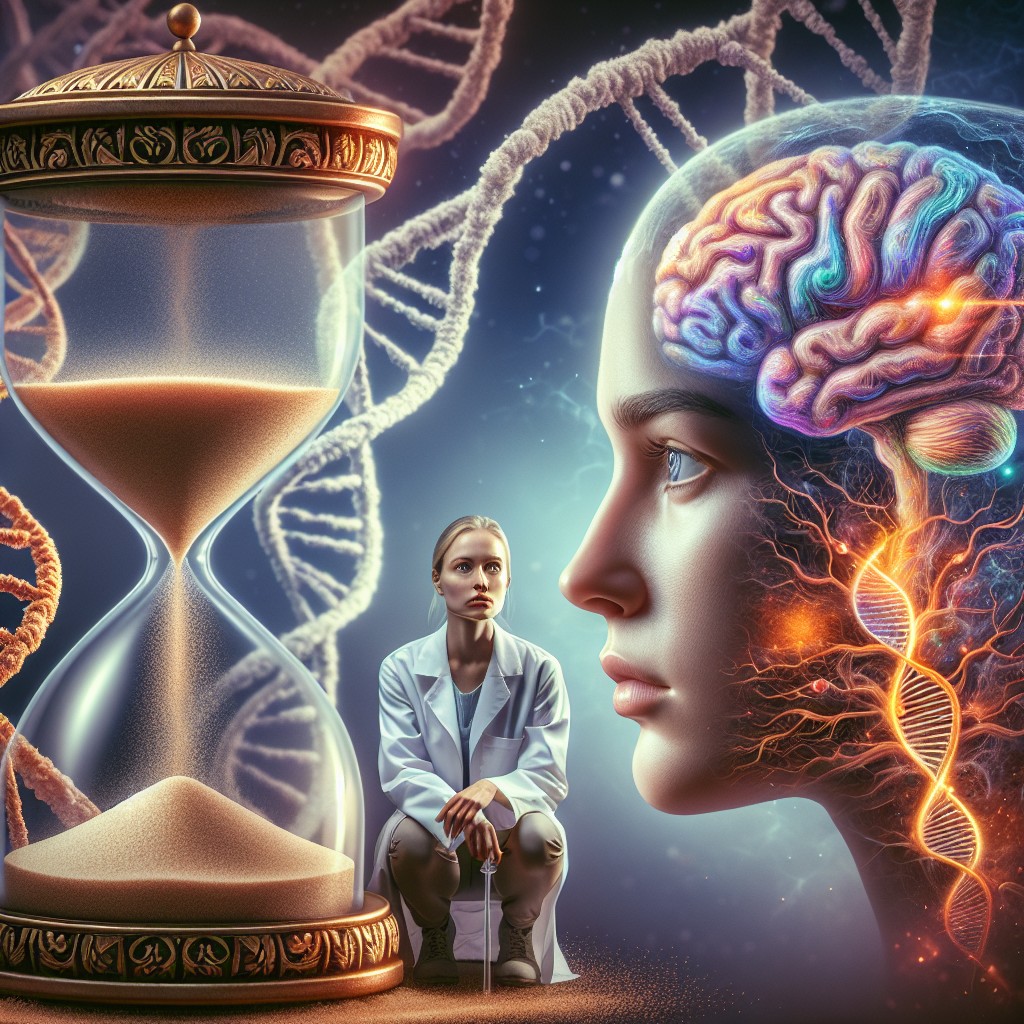Aging is a natural and inevitable process that affects all living organisms. Over time, our bodies undergo a series of physiological changes that can lead to a decline in physical and cognitive functions. However, recent advancements in scientific research have shed light on the underlying mechanisms of aging and potential interventions to slow down this process.
At the cellular level, aging is attributed to a variety of factors, including DNA damage, oxidative stress, telomere shortening, and cellular senescence. DNA damage, caused by environmental factors and natural cellular processes, can result in mutations and impair the cell's ability to function properly. Oxidative stress, on the other hand, occurs when there is an imbalance between the production of reactive oxygen species and the body's antioxidant defenses. Telomeres, the protective caps at the ends of chromosomes, shorten with each cell division and eventually reach a critical length, leading to cellular senescence.
Scientists have also discovered several genetic and biochemical pathways that play a role in the aging process. One of the most well-known pathways is the mTOR (mechanistic target of rapamycin) pathway, which regulates cell growth, metabolism, and aging. Caloric restriction, a dietary intervention that involves reducing calorie intake without malnutrition, has been shown to activate the mTOR pathway and extend lifespan in various organisms, including yeast, worms, flies, and mice.
Another important aspect of aging is the decline in mitochondrial function. Mitochondria are the powerhouses of the cell, responsible for generating energy through oxidative phosphorylation. As we age, the efficiency of mitochondrial function decreases, leading to a decrease in energy production and an increase in free radicals. This decline in mitochondrial function has been linked to various age-related diseases, such as neurodegenerative disorders and cardiovascular diseases.
In recent years, scientists have been exploring potential interventions to slow down the aging process and delay the onset of age-related diseases. One promising area of research is the field of senolytics, which aims to target and eliminate senescent cells that accumulate with age. Senescent cells are dysfunctional cells that no longer divide but remain metabolically active, secreting harmful molecules that contribute to inflammation and tissue damage. By selectively removing these senescent cells, researchers hope to promote tissue regeneration and delay the onset of age-related diseases.
### Antioxidants
Another avenue of research is the use of antioxidants and anti-inflammatory compounds to counteract oxidative stress and chronic inflammation, both of which are associated with aging. Resveratrol, a compound found in red wine and certain fruits, has been shown to activate longevity genes and improve mitochondrial function in animal studies. Other compounds, such as curcumin and green tea extract, have also demonstrated potential anti-aging effects through their antioxidant and anti-inflammatory properties.
### The Role of Hormones in Aging
Hormones play a significant role in the aging process. As we age, hormonal levels, particularly those of growth hormone, estrogen, and testosterone, tend to decrease. This decline in hormonal levels is associated with various aging signs, such as reduced muscle mass, bone density, and skin elasticity. Hormone replacement therapy is being explored as a potential way to alleviate these age-related changes, although it comes with its own set of risks and benefits.
### The Impact of Lifestyle on Genetic Aging
Lifestyle choices can directly impact the genetic aspects of aging. Factors like smoking, excessive alcohol consumption, and poor diet can accelerate the aging process by increasing oxidative stress and DNA damage. Conversely, a healthy lifestyle can help preserve telomere length and enhance DNA repair mechanisms. This suggests that our daily habits play a crucial role in how quickly we age biologically.
### The Promise of Anti-Aging Drugs
The development of anti-aging drugs is a burgeoning area of research. Drugs like metformin, traditionally used to treat diabetes, are being studied for their potential anti-aging effects. These drugs could work by enhancing insulin sensitivity, reducing inflammation, and improving mitochondrial function, thereby potentially extending lifespan and reducing the incidence of age-related diseases.
### Understanding the Role of Autophagy in Aging
Autophagy, the process by which cells remove and recycle damaged components, is crucial for maintaining cellular health and function. As we age, the efficiency of autophagy declines, leading to the accumulation of cellular waste and damaged components. Enhancing autophagy through dietary interventions like intermittent fasting or specific drugs could be a strategy to mitigate age-related cellular decline.
### Neurodegeneration and Aging
One of the most challenging aspects of aging is the increased risk of neurodegenerative diseases such as Alzheimer's and Parkinson's. Research is focused on understanding the molecular mechanisms underlying these diseases, with the aim of developing preventative and therapeutic strategies. Factors like the accumulation of toxic proteins and loss of neuronal connections are key areas of investigation.
### The Future of Aging Research
As the field of gerontology advances, the future of aging research looks promising. With the integration of artificial intelligence and machine learning, researchers can analyze vast amounts of data to uncover new insights into the aging process. This could lead to the development of personalized anti-aging therapies tailored to individual genetic and health profiles.
In conclusion, the science of aging is a complex and multifaceted field that encompasses various biological processes and genetic pathways. While aging is inevitable, ongoing research offers promising insights into potential interventions to slow down the aging process and delay the onset of age-related diseases. By understanding the underlying mechanisms of aging and adopting a healthy lifestyle, we can strive to age gracefully and maintain our quality of life for longer.

Share This Article
More Articles You Might Like
Discover More Content
Explore our collection of articles across various topics and categories. From cutting-edge technology insights to wellness wisdom, we curate the best stories to expand your horizons.
Article ID: 356